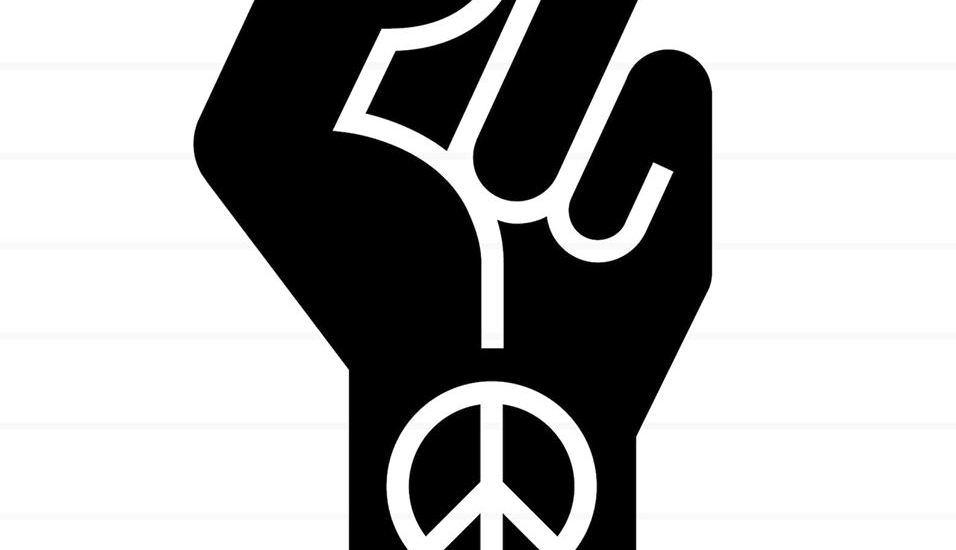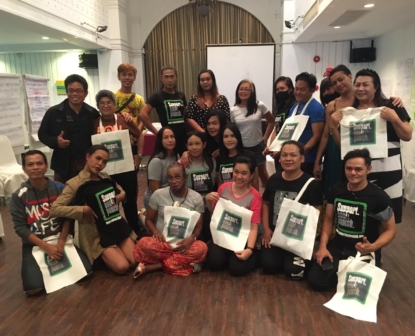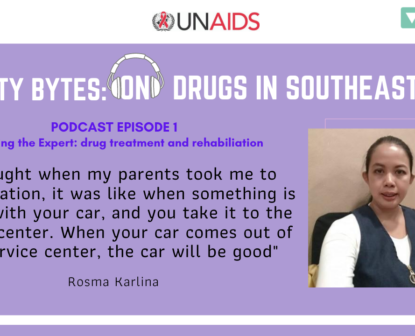Project
SPIRIT
-
Amount Funded
74,127 EUROProject Duration
15 Jan 2020 - 15 Jan 2021 -
-
Lead organisation
Asia Catalyst Foundation (fiscal host) for Aksi Keadilan Indonesia (AKI)
-
Aksi Keadilan Indonesia (Action for Justice Indonesia; AJI) is an informal network of civil society and community-based groups that shares a mutual vision in providing access to justice for vulnerable people, especially women who use drugs. The network is bound by the principle of equality under the law as a foundation of justice for all Indonesian communities. AJI is an organisation that provides legal assistance through the work of pro-bono and paralegal lawyers, and non-legal people who have contextual knowledge related to the cases being handled.
AKI is working in a consortium with the following organisations from their respective countries: AJI as the lead applicant from Indonesia; Asia Catalyst, registered in Thailand, as their fiscal host of this project; IDPC as the regional coordinator and technical advisors to the project partners; IDU care in the Philippines; and Health and Opportunity Network in Thailand. Rightsholders from Malaysia and Cambodia are organised through informal groups. Asia Catalyst Foundation is a non-profit civil society organisation with the mission to train leaders of community-based organisations to run effective, sustainable, and democratic organisations, and to conduct rigorous human rights research and advocacy across Asia.
-
Organisation
Aksi Keadilan Indonesia (Action for Justice Indonesia; AJI) is an informal network of civil society and community-based groups that shares a mutual vision in providing access to justice for vulnerable people, especially women who use drugs. The network is bound by the principle of equality under the law as a foundation of justice for all Indonesian communities. AJI is an organisation that provides legal assistance through the work of pro-bono and paralegal lawyers, and non-legal people who have contextual knowledge related to the cases being handled.
AKI is working in a consortium with the following organisations from their respective countries: AJI as the lead applicant from Indonesia; Asia Catalyst, registered in Thailand, as their fiscal host of this project; IDPC as the regional coordinator and technical advisors to the project partners; IDU care in the Philippines; and Health and Opportunity Network in Thailand. Rightsholders from Malaysia and Cambodia are organised through informal groups. Asia Catalyst Foundation is a non-profit civil society organisation with the mission to train leaders of community-based organisations to run effective, sustainable, and democratic organisations, and to conduct rigorous human rights research and advocacy across Asia.
-
Project
In 2019, the International Drug Policy Consortium (IDCP) released a shadow report evidencing how Southeast Asia has become one of the regions in the world with the harshest drug policies in the world. As a result of such punitive approaches (promoting criminalisation and state-promoted violence), human rights violations are widespread and the brunt of their negative consequences are borne by groups most vulnerable and marginalised, especially women who use drugs. The death penalty, extrajudicial killings, gender-based violence (including sexual violence), high rates of incarceration, lack of access to public defenders and justice in courts, are only part of the problems that women who use drugs in Southeast Asia are exposed to. Women who use drugs are demonised for their failure to behave ‘womanly’ or as a ‘good woman,’ and experience worse health outcomes as compared with their male counterparts as shown in higher rates of mortality, exposure to HIV and AIDS, social exclusion, stigma, and discrimination, as well as poorer access to health services in general. Despite availabilities on rehabilitation facilities and interventions (including harm reduction services) provided by governments, and even civil society organisations are designed mostly by men for men, leaving behind the specific needs of women.
Therefore, women (including transgender women) who use drugs are amongst the most vulnerable among groups that are already heavily discriminated against and persecuted: the community of people who use drugs. Additionally, there is very little support to empower and ensure the protection of the rights of women who use drugs. This has resulted in the lack of women’s voices in advocacy for actions against those rights violations and advocating for drug policy reforms based on human rights. In line with this, the Strengthening and empowering women who use drugs in Southeast Asia (SPIRIT) project led by Aksi Keadilan Indonesia (Action for Justice Indonesia; AJI) with support from Asia Catalyst (as their fiscal host), empowers women who use drugs in Indonesia, Philippines, Thailand, Cambodia, and Malaysia.
The project looks at establishing (and strengthening) networks of women who use drugs to advocate for gender equality, social inclusion, and more humane drug policies. This objective is achieved by carrying out activities at country and regional level; the country-based activities are tailor-made to promote empowerment and leadership skills of women who use drugs adapted to their national cultural and political context; while the regional activities serve as platforms to promote cross-country solidarity among these women in Southeast Asia, to exchange lessons learned from their respective activities, and to increase their capacities to advocate for gender-specific rights and drug policy reform.
-
-
In 2019, the International Drug Policy Consortium (IDCP) released a shadow report evidencing how Southeast Asia has become one of the regions in the world with the harshest drug policies in the world. As a result of such punitive approaches (promoting criminalisation and state-promoted violence), human rights violations are widespread and the brunt of their negative consequences are borne by groups most vulnerable and marginalised, especially women who use drugs. The death penalty, extrajudicial killings, gender-based violence (including sexual violence), high rates of incarceration, lack of access to public defenders and justice in courts, are only part of the problems that women who use drugs in Southeast Asia are exposed to. Women who use drugs are demonised for their failure to behave ‘womanly’ or as a ‘good woman,’ and experience worse health outcomes as compared with their male counterparts as shown in higher rates of mortality, exposure to HIV and AIDS, social exclusion, stigma, and discrimination, as well as poorer access to health services in general. Despite availabilities on rehabilitation facilities and interventions (including harm reduction services) provided by governments, and even civil society organisations are designed mostly by men for men, leaving behind the specific needs of women.
Therefore, women (including transgender women) who use drugs are amongst the most vulnerable among groups that are already heavily discriminated against and persecuted: the community of people who use drugs. Additionally, there is very little support to empower and ensure the protection of the rights of women who use drugs. This has resulted in the lack of women’s voices in advocacy for actions against those rights violations and advocating for drug policy reforms based on human rights. In line with this, the Strengthening and empowering women who use drugs in Southeast Asia (SPIRIT) project led by Aksi Keadilan Indonesia (Action for Justice Indonesia; AJI) with support from Asia Catalyst (as their fiscal host), empowers women who use drugs in Indonesia, Philippines, Thailand, Cambodia, and Malaysia.
The project looks at establishing (and strengthening) networks of women who use drugs to advocate for gender equality, social inclusion, and more humane drug policies. This objective is achieved by carrying out activities at country and regional level; the country-based activities are tailor-made to promote empowerment and leadership skills of women who use drugs adapted to their national cultural and political context; while the regional activities serve as platforms to promote cross-country solidarity among these women in Southeast Asia, to exchange lessons learned from their respective activities, and to increase their capacities to advocate for gender-specific rights and drug policy reform.
- News





